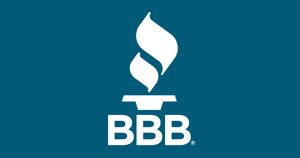Straight Talk: Responding to phony bank text could cost you thousands

Better Business Bureau serving Canton Region and Greater West Virginia offers tips and advice for consumers to avoid fraudulent practices.
One of scammers' favorite tactics is impersonating a person or organization you know and trust. That is the premise of this new text message scam, which has been popping up in recent BBB.org/ScamTracker. This time, con artists are impersonating your bank.
How the scam works
You receive a text message that looks like a fraud alert from your bank. It claims there is some unusual activity in your account. It may read: "Bank Fraud Alert – Did you approve a transaction for $1,000? Reply YES or NO." If you reply to the text, the scammer now knows they have an active number – and a person to scam.The scam does not end there. The scammer will call you to follow up, and the number will appear in the caller ID as coming from your bank. When you answer, the caller claims to be a bank representative who can help stop the fraudulent charges. To do so, you need to send money to yourself using Zelle or another digital wallet app. The caller walks you through the process of connecting the app to your bank account. Then, they ask you to verify the connection by sharing the code your bank sent.If you give the scammer your verification code, the scammer can set up an account with your phone number and email – but their bank account information. If that happens, when you send money to "yourself," you are sending money to the scammer. Disputing the charges will be difficult because the scammer has tricked you into approving the transaction. Sending money through a digital wallet app is like using cash, making it very hard to get your money back.
See the full BBB Scam Alert for an example of this scam. (bit.ly/Banktextscam)
How to spot this scam
Do not reply to suspicious texts. Ignore any instructions to reply yes or no if you receive an unsolicited, suspicious text message. If you reply to a scammer, they could save your number as "active" and target you with future scams.
Watch out for fake caller IDs. Scammers can spoof caller ID names and numbers to make you think you are receiving a call from a reputable source. If you were not expecting to be contacted by your bank, it is best to avoid answering. Instead, call the number on the back of your ATM card to confirm that there is an issue.
Never share one-time passcodes. Scammers can use one-time passcodes from your bank or any other company to access your accounts and change information. Do not share them with anyone, no exceptions.
Contact your bank if you suspect a scam. If you receive an unsolicited call, text, or email that you suspect is a scam, contact your bank immediately and let them know.
Understand your bank's policies. Know that your bank will never ask you to send money to yourself. If someone tries to convince you otherwise, it's a scam.
For more information − See the related BBB Scam Alert about phony banking texts and calls (bit.ly/phonescamBBB) and review the BBB Tip on avoiding impostor scams (BBB.org/article/news-releases/21686-how-to-avoid-impostor-scams). If you have been the victim of a scam, report it at BBB.org/ScamTracker. Your report can help others avoid falling victim to scams.
For BBB information − Visit BBB.org or call 330-454-9401 to look up a business, file a complaint, write a customer review, read tips, find our events, follow us on social media, and more!
This article originally appeared on The Repository: Straight Talk: Responding to phony bank text could cost you thousands
